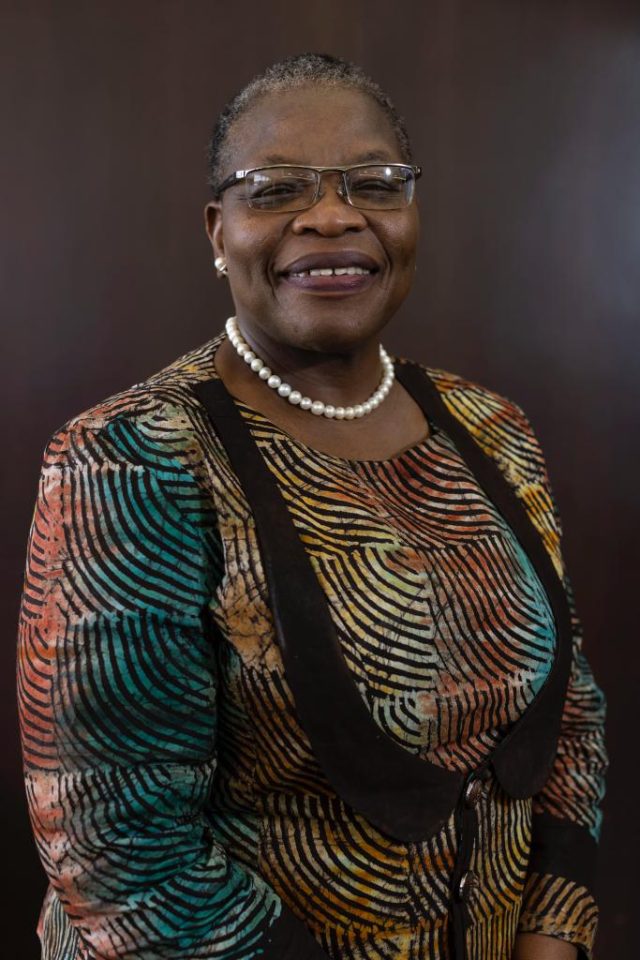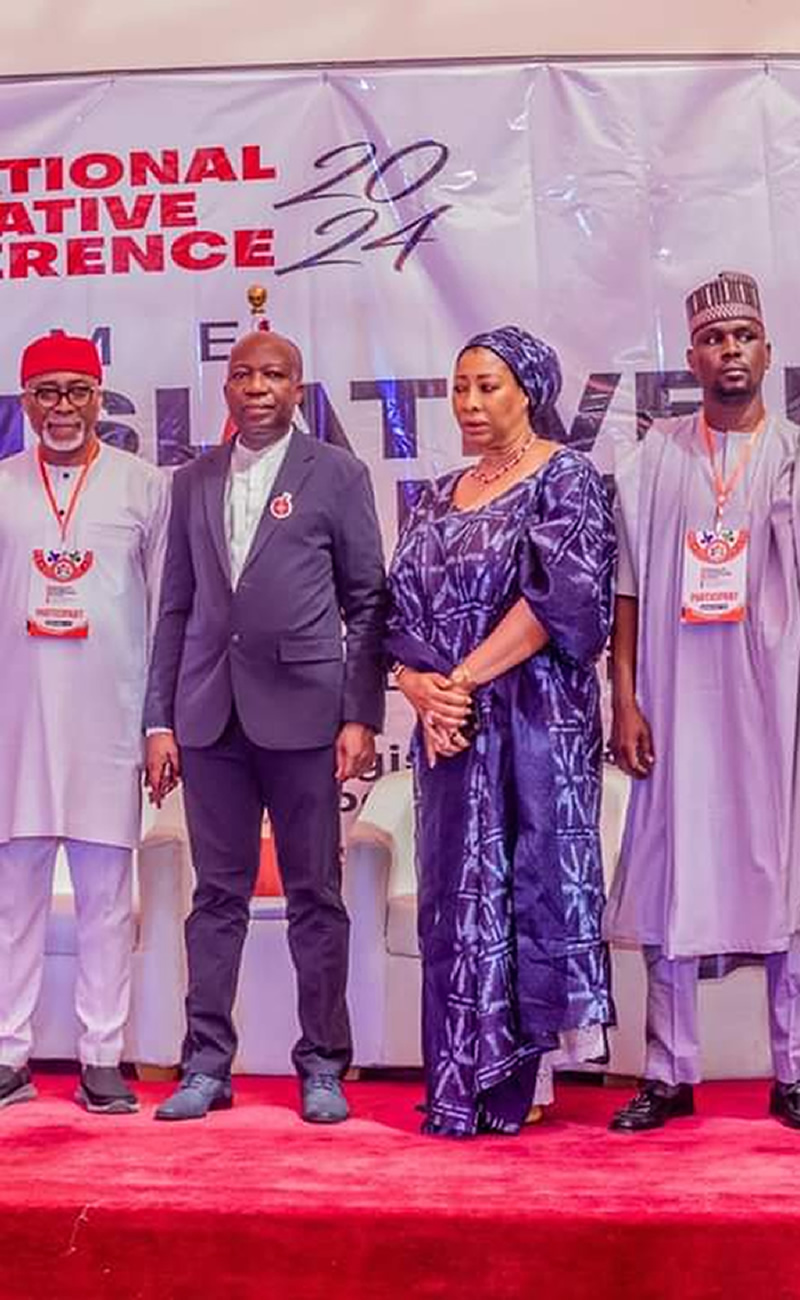In commemoration of Africa’s Day 2023, former World Bank Vice-President for Africa, Oby Ezekwesili et al examines state of development on the continent and the important role of politics
By Obiageli Ezekwesili, Alioune Badara Fall, Adama Gaye

Sixty years ago, this day, May 25, Africa led the world in creating the first-ever pan-continental political body with the establishment of the Organisation of African Unity (OAU). It was in 1963 when 30 leaders of Africa’s sovereign republics came together in Addis Ababa, Ethiopia, to sign the founding Charter of the new body. This is where the celebration of May 25 as Africa Day originated.
The OAU had, from its inception, a bold and transformational mission as it was set up to facilitate the attainment of economic development, social transformation, political freedom, and the completion of independence in the African countries still under the yoke of foreign actors while also launching the struggle to dismantle racists regimes in Rhodesia -later Zimbabwe, South Africa and Namibia.
Sadly, sixty years after, not much seems to have been achieved by the OAU. Not even after it transformed into the African Union (AU) in 2002 in a bid to upscale its objectives towards greater economic independence and democratisation, peace, security, and prosperity, as well as asserting itself in global affairs.
Contemporary evidence shows that the story of Africa is far from the rosy prospects predicted by some who thought it could claim the 21st century. Africa has fallen far short. The challenge it faces today, with coups, wars, terrorism, decaying social and physical infrastructure, democratic regression and other ills, seems to vindicate those who, not too long ago, depicted the continent as a lost hope or, to use Tony Blair’s damning condemnation as a “scar on the face of humanity.” Former USA President, Donald Trump even went farther to define its nations in unprintable words. The stark reality is that most, if not all, development indicators demonstrate that Africa’s fate has gotten far worse than it was in 1963.
READ ALSO: UN Security Council: ECOWAS insists on two permanent seats for Africa
Apart from a few encouraging signs from countries like Tanzania, Namibia, Mauritius, Cape Verde, Morocco, the numbers are not good. ‘Africa has a young population that is growing rapidly, but 30 million children are out of school. Half of all children reach adolescence without achieving literacy or numeracy. 35% of the youth have no access to secondary education or technical skills development.
About ‘1 in 14 children in sub-Saharan Africa die before reaching their fifth birthday — 15 times higher than the risk for children born in high-income countries and 20 years behind the world average, which achieved a 1 in 14 rate by 2001. On the economic front, the World Bank in Africa reports that ‘Sub-Saharan Africa (SSA’s) economic growth dropped to 3.6% in 2022 from 4.1% in 2021 and is expected to dip to 3.1% in 2023. The economic growth in SSA is not uniform across subregions and countries.
The GDP growth of Western and Central Africa is estimated to decline to 3.4% in 2023 from 3.7% in 2022, while that of Eastern and Southern Africa declines to 3.0% in 2023 from 3.5% in 2022. The region’s performance is still dragged down by lower long-term growth in the largest countries on the continent. Economic activity in South Africa is set to weaken further in 2023 (0.5%) as the energy crisis deepens, while the growth recovery in Nigeria for 2023 (2.8%) is still fragile as oil production remains subdued. Among the 10 largest economies in SSA—representing more than three-quarters of the region’s GDP—eight are growing at rates below their long-term average growth, including Sudan, Nigeria, Angola, and Ethiopia.’
On average, African countries’ public sector debt-to-GDP ratio stood at above 60 per cent in 2022. Islamist militant groups in Africa further expanded their territorial reach in 2022, particularly in the western Sahel, where al-Qaeda and Islamic State affiliates compete for influence and continue to make inroads.
What could be the cause of this perennial underperformance?
Many experts have grappled with this question of Africa’s consistent poor economic, social and political performance over the last six decades. In trying to understand this unusual phenomenon and locate the causal factor(s), they have looked at common issues like corruption, poor leadership, poverty, social insecurity, poor human capital infrastructure, faulty policies, religious and ethnic divisions, fratricidal wars, etc. These issues, as plausible as they may seem, are at best, symptoms of a systemic and structural problem in Africa.
However, with the growth of political innovation, particularly since 2000, in African countries, new vistas of understanding of the economic under-performance of African countries are beginning to emerge and gain consensus. The conventional wisdom is that citizens of Africa need to organize and mobilize to compel the political leadership of their countries to urgently reform the continent’s broken political system.
This is a key reason that led to the creation of #FixPolitics, whose mission is to elevate the office of the citizen to its rightful place in Africa and develop a political class of servant leaders. A citizens-led research-based movement, #FixPolitics sees broken politics as the root cause of Africa’s poor governance and backward economic development. It is therefore committed to structurally changing and innovating politics in Africa.
Politics is an essential factor in the development of any country, and Africa is no exception. Political leaders are responsible for making decisions that affect their citizens’ economic, social, and political well-being. Africa’s politics is broken and dysfunctional, which is why despite the abundance of natural resources and growth potential, many African countries continue to struggle to achieve sustainable development.
The failure of the continent’s variant of politics and public leadership inherently subverts public good and places personal and narrow interest above the collective well-being of citizens. It distorts and compromises good governance. In the absence of good governance, economic and human development are impeded, and monopoly democracy becomes the toxic oxymoron that is bequeathed to a continent begging for an urgent political reset.
With pervasive corruption and the looting of public funds at the expense of ordinary citizens fast becoming the norm, even the barest minimum expectations of citizens towards their government are now seldom met. The range of unmet citizens’ expectations grows wider year after year in almost every country on the continent. This has led to an erosion of citizens’ trust in democratic institutions, shallow levels of social capital, a stalling institution-building process and, more generally, a slow transitioning process from country to nation, rising levels of extreme poverty and insecurity in the continent.
READ ALSO: POPULA: “Time for African parliaments to be more transparent”
As Africa celebrates, rightly so, its day, we are convinced that her present and future will only be bright if the challenges encumbering the political climate in which it exists are thoroughly examined and fixed. Failing to do so will mean sustaining the present intolerable status quo. In the same way, Pan-Africanist and independence movements fought hard to win the formal battles of recognition and freedom for its nations. It is obvious that creating a conducive political climate that will nurture and support democracy, good governance, economic and human development, and other intangible norms is the pre-requisite for Africa’s renewal.
The urgency of this auspicious time in history calls for strategic action. As it celebrates 60 years of integration attempt, it is time for Africa to re-emerge from the shackles of arrested development and embrace the future with confidence in the possibilities and opportunities for progress and development. The most effective way to start is to make a determined effort to reform its current unproductive political system because politics trumps everything else.
This process must begin not with the leaders but with citizens of the continent, fully and actively occupying the office of the citizen. Indeed, given the monopolistic variant of democracy that pervades the continent, it is incumbent on citizens to engage, mobilize and to collectively demand for constitutional, political, electoral and economic reforms that will give currency to democracy, good governance and development.
READ ALSO: Sudan: “There can be no winner in this conflict” – President, Pan-African Parliament
For far too long African citizens have ignored Politics, waiting for Governments to be formed before a few citizens manage to come forward to demand for Good Governance. This attitude of waiting ‘downstream’ before engaging has and continues to be counterproductive. The #FixPolitics research shows clearly that the quality of Government and by implication the quality of Governance is determined ‘Upstream’ at the Politics stage – the stage where citizens typically abdicate their civic responsibility by failing to engage and participate effectively in the political process.
Using the ‘Triangular Pillars of Democracy’ as a framework, citizens across all countries of Africa must now begin to shape the quality of leadership and institutions that will deliver good governance by collectively engaging their political systems to ensure Quality Politics.
Citizens must compel African leaders to institutionalize a politics that supports sound policies, strong institutions, and effective and efficient priority of investment in public goods and services for private sector emergence. Only African citizens working together can compel the governments of their respective countries to respond urgently and stem the continued backward slide of development in the continent.
In the immortal words of Margaret Mead, ‘never doubt that a small group of thoughtful, committed citizens can change the world.’ The time is ripe for change and Africa must seize the moment to put its politics in order and march towards a bright and prosperous future.
- Dr. Obiageli Ezekwesili, former World Bank Vice-President for Africa, co-founder, Transparency International and former Minister of Education in Nigeria, is Founder of #FixPolitics.
- Professor Alioune Badara Fall, is a Senegalese Emeritus Professor of Public Law at the University of Bordeaux, and Dean of the SPPG Senegal.
- Adama Gaye, is an author, former Ecowas Information Director, and Convener of #FixPolitics Senegal.



